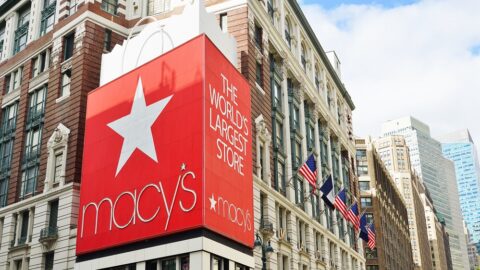Macy’s posted a sales loss for the seventh straight quarter, another strong sign that the retailer must find ways to get the most value out of its brick-and-mortar stores.
In Q3, Macy’s reported:
-
Sales declines of 4.2% to $5.6 billion;
-
Comparable store (both owned and licensed) sales declines of 2.7%;
-
Earnings per share (EPS) of $0.17, well below Thomson Reuters estimates of $0.41; and
-
Net income declines from $118 million in Q3 2015 to $17 million.
While quarterly sales totals remain grim, the retailer reaffirmed its upcoming full year earnings per share (EPS) guidance and raised its full year sales outlook.
With Macy’s already committing to closing an additional 100 stores after poor Q2 results, it’s clear the department store is now trying new methods to maximize revenues generated through its real estate portfolio. The retailer formed a strategic alliance with Brookfield Asset Management, in which the firm will have an exclusive right for up to 24 months to create a “pre-development plan” for each one of approximately 50 Macy’s real estate assets.
The portfolio ranges from additional developments on a portion of an asset — such as a Macy’s-controlled land parcel adjacent to a store — to the complete redevelopment of an existing store.
“The Brookfield alliance strengthens our ability to improve the customer shopping experience by giving us greater flexibility to invest in our most productive and highest-potential locations, and to make the most of our real estate assets, or portions of them,” said Terry Lundgren, Chairman and CEO of Macy’s.
As part of this emphasis on property value maximization, Macy’s has signed a contract to sell its 248,000-square-foot Union Square Men’s building in San Francisco for $250 million. The retailer will use part of the proceeds to consolidate the Men’s store into its main Union Square store. Macy’s will lease the Men’s store property for approximately two to three years as it completes the reconfiguration of the main store.
The company expects the transaction to close in January 2017 and projects that it will recognize a gain of approximately $235 million in January 2018.
Macy’s also continues to explore various strategic development options for its downtown Minneapolis, State Street (Chicago) and Herald Square (New York City) stores. The department store has already sold off five stores to mall operator General Growth Properties and expects to sell its downtown Portland, Ore. store for $54 million.












